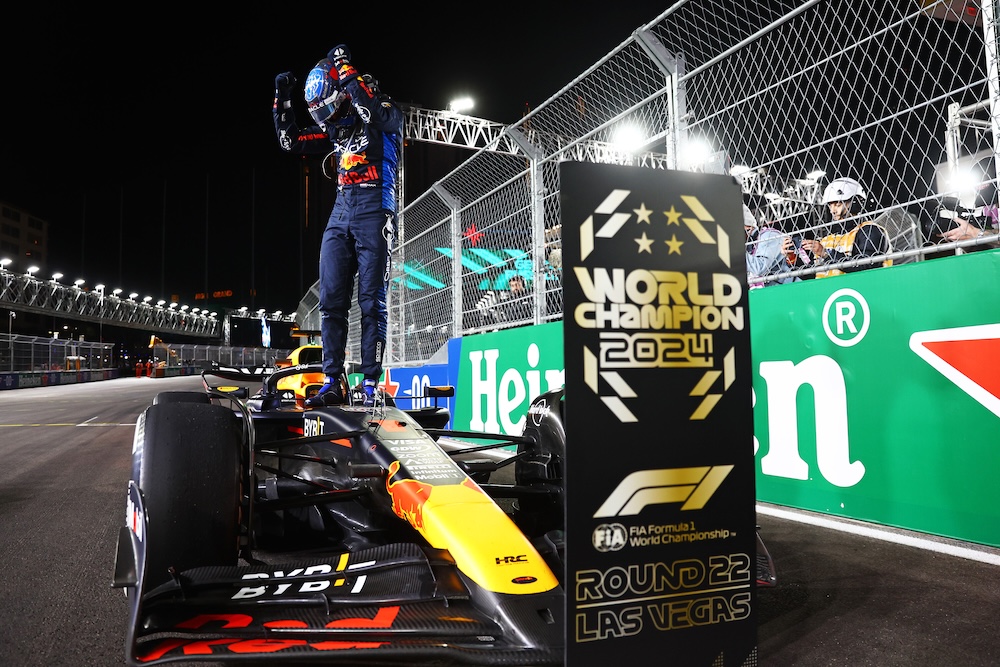
Dominance doesn’t always breed a true appreciation of what someone has achieved, but Max Verstappen’s latest drivers’ title has got to be viewed as something special.
Verstappen could already claim a place among the very best in Formula 1 history, but his fourth world championship moves him into even greater company, joining Alain Prost, Sebastian Vettel, Juan Manuel Fangio, Michael Schumacher and Lewis Hamilton with four or more titles.
Of those, only Prost did not win four in a row, showing how the best drivers have managed to capitalize when they have machinery capable of putting them in the fight. But where Verstappen’s success really stands out this year is with in the context of Red Bull’s season.
Currently third in the constructors’ championship — and looking increasingly likely to stay there — is set to create a scenario where Verstappen becomes just the third driver in history to win a drivers’ championship when driving for a team that finishes outside the top two positions.
Of the two previous occasions, 1982 was a remarkable year that delivered Keke Rosberg a championship with just one victory. On that occasion, his Williams team finished fourth overall but was just 16 points adrift of champions Ferrari, with 15 per weekend on offer.
One season later, Nelson Piquet took the crown driving for Brabham, when his team ended up third in the constructors’, 17 points behind Ferrari.
Even if Red Bull gains a position over the final two rounds, only 11 times has a driver won the title when their team hasn’t taken the constructors’ crown, so it’s a rare achievement that should not be overlooked.
But I don’t mind admitting that it was easy to do so in the early part of the year. The familiarity of Verstappen winning races meant there wasn’t always the same scrutiny over each victory as there can be with hindsight now.
Take Imola, for example, where Verstappen won his fifth race from the first seven rounds. He was denied the chance to succeed in Melbourne due to a reliability issue, so you could view it as five wins from six finishes, with the only blemish being his second place behind Lando Norris in Miami.
We weren’t used to consistent McLaren challenges at that point, but each race pays the same 25 points for finishing first and Imola was an important one. After an impressive pole lap, Verstappen was cruising in the first part of the race, but then Norris came back at him as the McLaren proved itself to be a stronger car on the hard compound tire.
Verstappen was unflappable and just managed to keep Norris at bay to take the win, but had Norris got the better of him on that occasion then entering this weekend the gap between the two would have been 48 points instead of 62. Or 30 points prior to his stunning drive to win in Interlagos.
History would never play out identically, of course, but there were more occasions were Verstappen either held Norris off — think Canada, Spain or Circuit of The Americas — or ensured he did not give up significant points to the McLaren when he didn’t have the car to win.
Zandvoort and Singapore spring to mind where Norris and McLaren were in a different league to Verstappen and Red Bull, but second place in each of those races helped protect a championship advantage that then ensured Norris could not afford a result such as Brazil.
It’s a very different way of winning a champi onship compared to the previous three, where Verstappen never faced multiple threats on a consistent basis. This year there have been times he’s had to navigate McLaren, Ferrari and even Mercedes offering stern challenges, and he’s turned that into an opportunity to defend his lead more often than losing significant points.